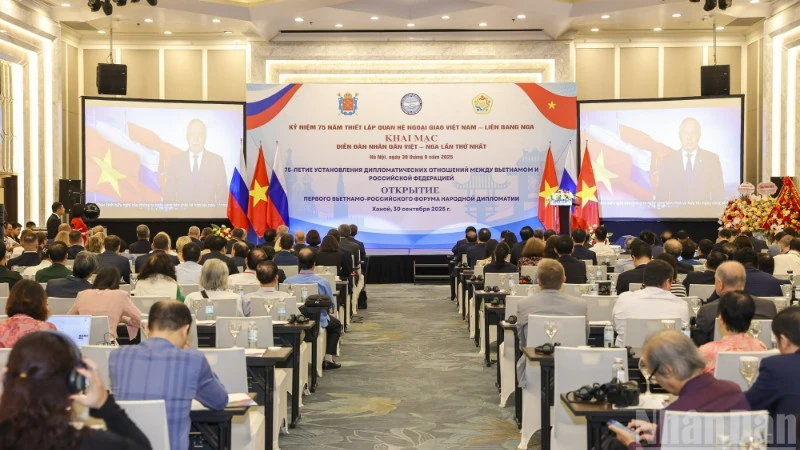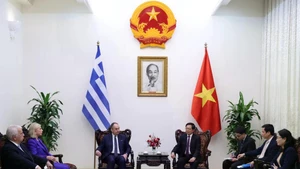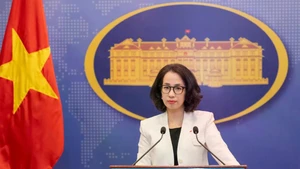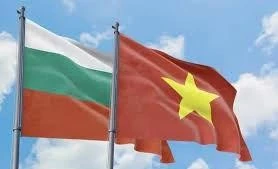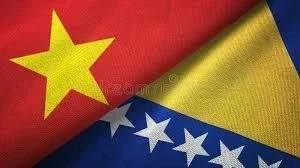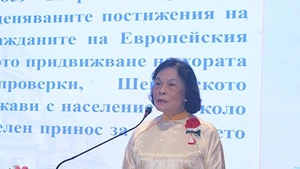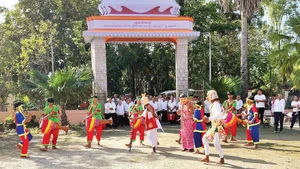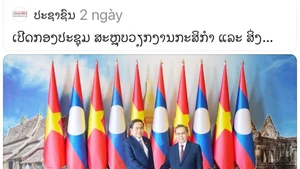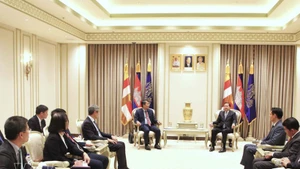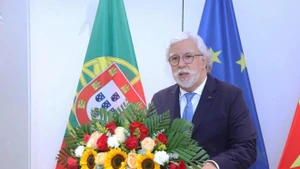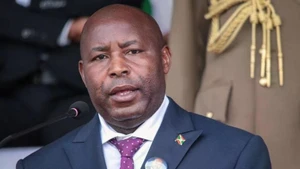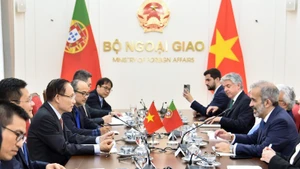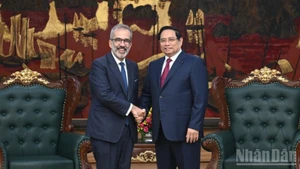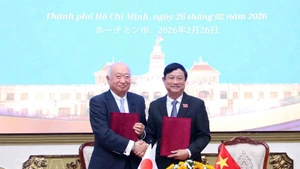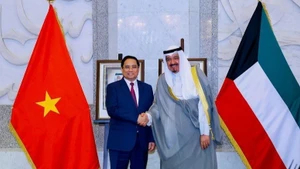This was the assessment of Mai Nguyen Tuyet Hoa, First Secretary in charge of education and representative of Viet Nam’s Ministry of Education and Training in Russia, at the seminar titled “Culture, Education, and Arts: Connecting Heritage and the Future”— one of the key events within the framework of the forum.
Emphasising that people-to-people diplomacy is an important pillar complementing state diplomacy, particularly in culture and education, Hoa highlighted the significance of combining these two areas. “Education is the most effective path to convey culture, while culture enriches the spiritual life within the educational environment,” she noted.
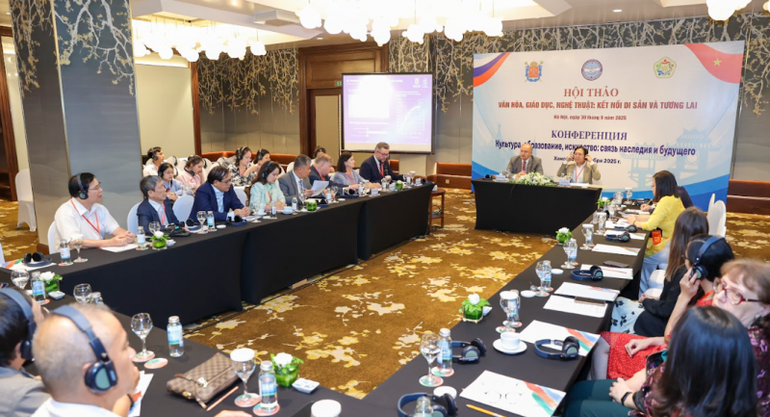
At the seminar, Hoa shared that cultural promotion activities in Russia have been vibrant and diverse, ranging from “Viet Nam Day” events at leading universities, cultural and artistic festivals, and programs celebrating the Vietnamese language to academic and artistic forums. A notable highlight was the Viet Nam Cultural Festival 2025, themed “Viet Nam – Colours from the Tropics”, held at Red Square in Moscow in July, which attracted nearly 1 million visitors.
Dialogues and exchanges among intellectuals, artists, and politicians have also helped bridge generations, inspire creativity, and guide young Vietnamese living in Russia.
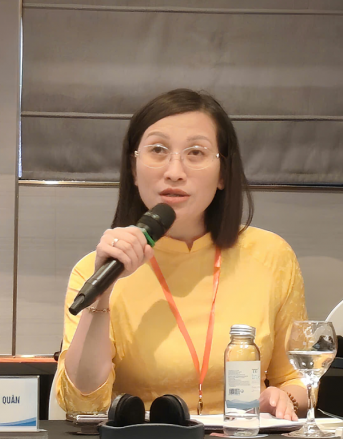
Affirming that culture, education, and the arts are vital bridges between the peoples of Viet Nam and Russia, Hoa outlined several proposals for the future: supporting the establishment of Vietnamese Cultural Clubs at major Russian universities; organising more “Viet Nam Day” events; developing “Open Culture Classes” to introduce Viet Nam in regular curricula at Russian schools and universities; using short-form digital videos to promote Vietnamese culture; engaging alumni of Russian universities to inspire and mentor current Vietnamese students; and enhancing cooperation with Russian grassroots partners in hosting cultural events.
For her part, Albina Legostaeva of the State Museum of Oriental Art (Russia) noted that the promotion of Vietnamese arts in Russia dates back to the mid-20th century, with people-to-people diplomacy playing a pivotal role. The museum’s collection of rare Vietnamese artifacts stands as living testimony to the enduring Viet Nam–Russia friendship. Even during the COVID-19 pandemic, the two sides expanded cooperation through new forms such as online exhibitions and virtual seminars, opening diverse avenues for museum exchanges.
As chair of the seminar titled “Science, Technology, and Healthcare: New Drivers for Viet Nam–Russia Cooperation”, which was one of the key events of the first Viet Nam–Russia People’s Forum, Professor and Doctor of Science Nguyen Dinh Duc, Chairman of the University Council of the University of Engineering and Technology at Viet Nam National University, Ha Noi, emphasised that in the context of Viet Nam’s implementation of Resolution 57-NQ/TW, which identifies science, technology, innovation, and digital transformation as strategic breakthroughs, enhancing cooperation with Russia — renowned for its scientific strengths in biomedicine, energy, and the environment — holds significant importance.
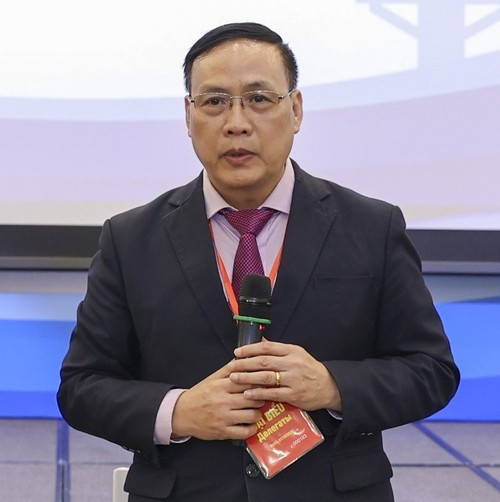
He noted that this field could become a new pillar and driving force in advancing the comprehensive strategic partnership between Viet Nam and the Russian Federation.
Providing an overview of Viet Nam–Russia scientific and technological cooperation, Vu Thi Tu Quyen, Deputy Director-General of the Department of International Cooperation, Ministry of Science and Technology of Viet Nam, stated that both countries attach great importance to science and technology and have laid out long-term development strategies.
Through the Viet Nam–Russia Joint Committee on Science and Technology and the Intergovernmental Committee on Economic, Trade, Scientific, and Technical Cooperation, the two sides have achieved tangible results ranging from basic research in natural, social, and human sciences to cooperation in peaceful uses of nuclear energy, biotechnology, medicine, agriculture, information technology, automation, and artificial intelligence, Quyen noted.
According to Doctor of Science Andrey Nikolaievich Kuznetsov, Russian General Director of the Viet Nam–Russia Tropical Centre, 57 Russian scientific and educational institutions have engaged in regular cooperation with the centre to date.
Its fixed and mobile laboratories, along with advanced training programmes for high-level personnel, contribute to strengthening national sovereignty, particularly in the study of natural pathogens and epidemic forecasting.
In May 2024, the Viet Nam–Russia Tropical Centre received the research vessel “Professor Gagarin,” marking the beginning of a new phase of cooperation in the study of tropical seas and oceans.
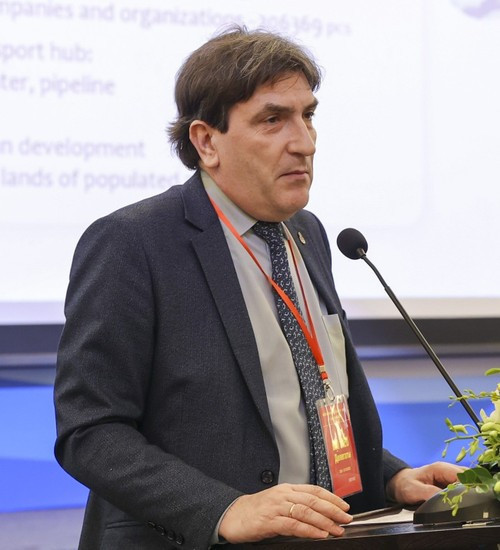
As a member of the Russian Federation’s delegation to the first Vietnam–Russia People’s Forum, Doctor of Geological and Mineralogical Sciences Ivan Serebritsky, Vice Chairman of the Environmental and Ecological Management Committee, shared Saint Petersburg’s experience in building a three-tier environmental monitoring system (central, local, and grassroots levels). He also suggested potential avenues for cooperation between research and training institutions of Viet Nam and Russia.
Beyond bilateral frameworks, Viet Nam and Russia also collaborate at multilateral forums such as ASEAN, APEC, the International Atomic Energy Agency (IAEA), and the World Intellectual Property Organisation (WIPO), along with other international organisations on standards, metrology, and quality assurance.
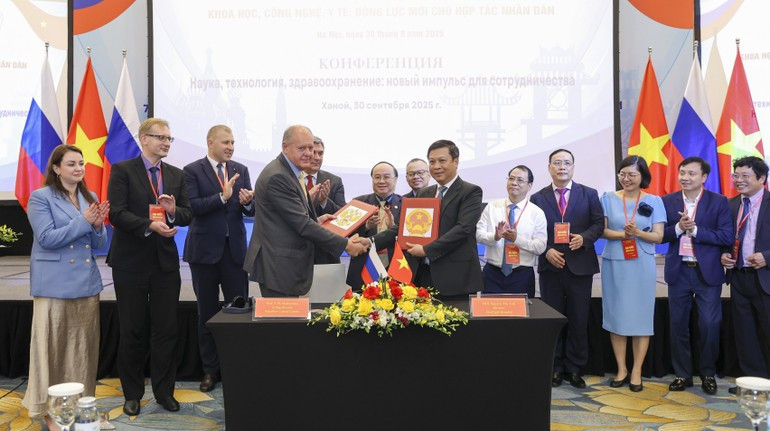
In the field of healthcare, highlighting the potential for collaboration between Viet Nam and the Russian Federation, particularly in cancer diagnosis and treatment, Professor and Doctor of Medicine Vladimir Moiseenko, Director of the Napalkov Oncology Centre, People’s Doctor of the Russian Federation, and Corresponding Member of the Russian Academy of Sciences, warned that the dominance of pharmaceutical corporations in cancer treatment has been driving up costs while treatment effectiveness remains limited.
